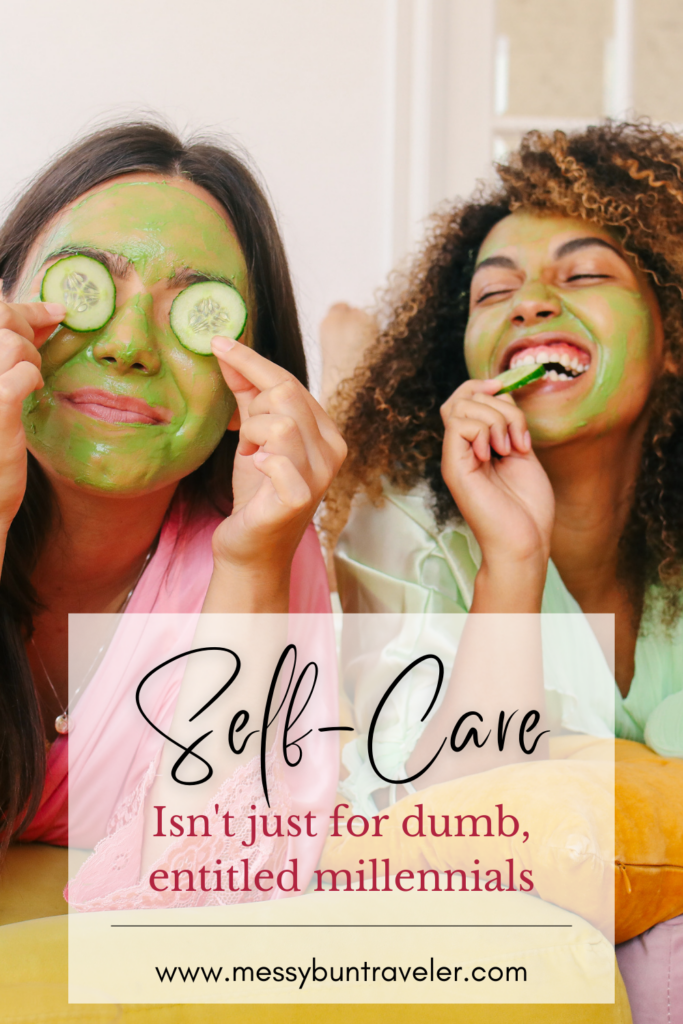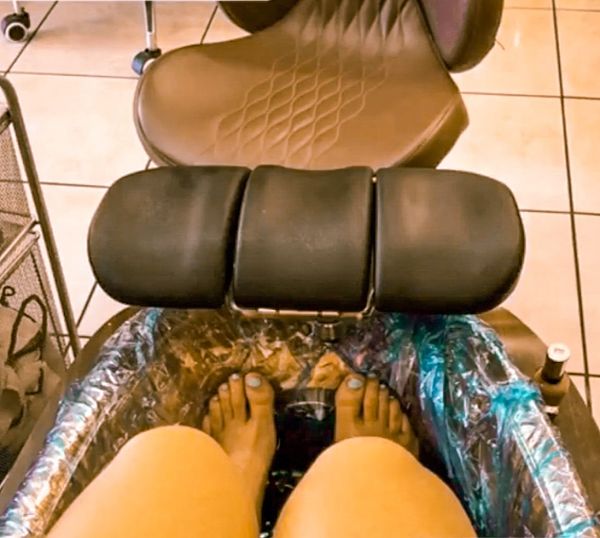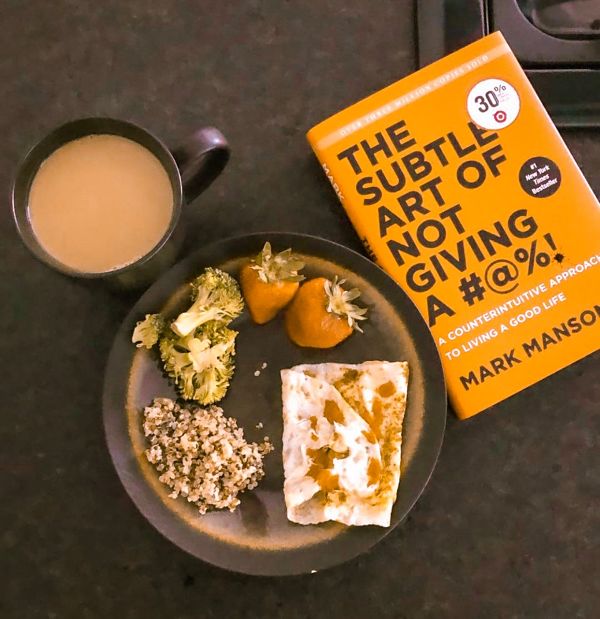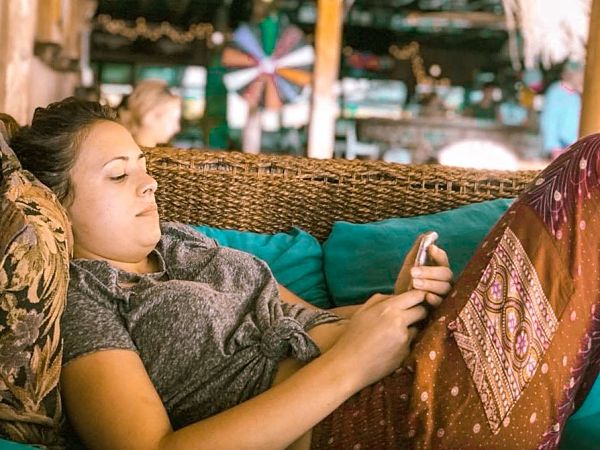Hey There!
I'm Reina
I am a full-time traveling registered nurse, fitness enthusiast, and nutrition expert. Every morning I wake up intending to bring awareness of the importance of health and spiritual wellness, especially to the traveling community. At Messy Bun Traveler, we promote travel that allows the traveler to either kick-start, maintain, or enhance a healthy lifestyle. So whether you're someone who travels for business, travels for pleasure, or new to travel and looking for health advice while on the road, this blog is for you!
inspiration
Categories:
health
destinations
fitness
resources
wellness
Privacy & Disclosure
The Messy Bun Traveler is designed to bring you fun stories, destination guides, and healthy travel advice. To help cover the cost of running this site, all posts are sprinkled with hand-selected affiliate links. When you click on one of these links and make a purchase, I will earn a small commission at no additional cost to you. I only accept affiliate links and paid advertisements from brands I believe in, trust and use personally. Thank you for your continued support!
Self-Care Isn’t Just for Dumb, Entitled Millennials
August 16, 2019

Millennials and self-care is something that has been gaining popularity in the wellness world for a while now.
Let’s face it, us millennials get a bad rap. We’re lazy, entitled, and self-centered. But the truth is, self-care isn’t just for us – it’s for everyone. Contrary to popular belief, taking care of yourself doesn’t mean you’re weak or selfish. It means you know your worth and you refuse to let anyone devalue you.
“You can’t pour from an empty cup. Take care of yourself first”
– Norm Kelly
I went to a new hairdresser the other day to get a little trim. This hairdresser shared her story of how she used to own a BIG salon that offered nail services, massages, haircare, facials, and so on. A few years ago, she made the decision to downsize to solely haircare because too many wellness centers and “self-care” centers were popping up in town, making it hard to compete. She proceeded to tell me that these days people are too obsessed with “self-care” and the “self” and are no longer interested in taking care of others.
I see your point hairdresser, I really do. I’ll be the first to admit that the practice of self-care has gotten a little out of control. People are spending thousands of dollars on themselves- more so than they’ve ever done in the past. But let me ask you this:
Do you think it’s wrong for a registered nurse, who’s just finished working three 12-hour shifts at the hospital, most likely being up on their feet the whole time, going out to get a nice foot massage and pedicure?
Do you think it’s wrong for a police officer or firefighter, who just finished working 36-48 hours straight, to say “no” to their boss about taking a double shift and instead taking a sabbatical to the coast for a few days?
Before jumping to judgment on how self-care is a “millennial buzzword” for supporting the habit of being self-centered and selfish– let’s dive into its long, rich history.
The history of millennials and self-care
Self-care was originally used in the medical world in the late 1960’s and early 1970’s as a way for doctors to help patients learn to exercise healthy life habits under their professional guidance. Early on, this practice was most often applied to mentally ill or the elderly—but later it was being used for workers in more high-risk and emotionally taxing professions (therapists, social workers, registered nurses, paramedics, etc.) in order to combat the high stresses brought on by the job.
The rationale behind it all was this: these individuals in high stress jobs cannot adequately take on the problems of others without first taking care of oneself mentally, emotionally, and physically.
When it got political…
During the rise of the women’s and civil rights movements, self-care became a political coin. Women and people of color viewed taking control of their health as a corrective to the failures of a white, patriarchal medical system.
It was a courageous act that started with acknowledging that the oppressed had needs, that these needs were important, that that they deserved to be met no matter what the oppressors said. Self-care was an impressive way to step back from toxic environments, to admit the hurts, and to find the time and space necessary to heal.
“Caring for myself is not self-indulgence, it is self-preservation, and that is an act of political warfare.”
– Audre Lorde
The term may not have stayed mainstream, but the concept never truly left American society.
During the emotional roller coaster of the 2016 election, self-care increased in online usage in alarming numbers. According to Google Trends, Americans googled the term almost twice as often as they ever had in the year’s past.
Modern self-care, similarly to how it was used in the past, is an attempt to undo the daily stressors of life. It’s a practice that encourages individuals to put their own health and wellness first, and not feel ashamed for doing so.
Little ways to incorporate self-care in YOUR life without being selfish:
Practicing self-care doesn’t have to cost you an arm and a leg. In fact, the origin of self-care is in itself a relatively “free” practice to achieve. Here are some simple ways you can incorporate self-care into your daily routine.
Plan a time of day for your self-care

Finding the time for the practice really does take some planning. If you have a really busy day working 12 hour + shifts (like nurses, for example) you may want to plan your time for self-care an hour before or after work. Perhaps you may want to unplug from social media by reading a book without distraction, take a relaxing bubble bath, or practice yoga and meditation. Just remember, it’s not selfish to let your family and friends know you need some time to yourself.
Revise your to-do list
If there’s something on your list that you know you’re not going to do or is too emotionally draining to do—just erase it. Make a to-do list you actually PLAN on doing, not one to just keep yourself busy and emotionally occupied.
Delete all the negative
This was some great advice from Gloria Atamno with The Blog Abroad! Get rid of all the negativity on your social feed by unfollowing accounts on Instagram that make you feel “icky” or bad about yourself. For example, if you’re following accounts for travel inspiration, but all they’re doing is making you feel bad about yourself or your life—unfollow. It’s that simple.
See also:
Practice turning your brain off through meditation

Give yourself at least 20 minutes (or whatever amount of time you can spare) for down-time to just sit and do nothing. Don’t think about your to-do list, your work, chores, etc. Just take some time to sit, breathe, and do nothing.
See also:
Read a book

With the dawn of social media, reading books have become somewhat of an ancient ritual. I know I found myself reading books less and less until most recently when I realized I needed a mental break from social media.
I’ve found that when I actually take some time out of my day to read a book, even if it’s only a chapter or two—I find myself much less stressed, a lot more relaxed, and even more motivated to be more productive! Rather than staring at a screen (TV, computer, cell phone, etc.) it’s great to dive into other people’s stories and give your own brain a chance to unwind from all the stimulation!
Millennials and Self Care – Get outside!

Spend some of your time outdoors with the fresh air and warm sunshine. Even medically, being outside is so important for our overall health and wellbeing! Don’t spend your entire day cooped up indoors. Go out and get your vitamin D! Studies also have shown that sunlight increases our overall mood and emotional happiness as well.
“Don’t forget to drink water and get sun. You’re basically a houseplant with complicated emotions.”
– Unknown
Keep a journal

If you’re feeling overwhelmed, journaling your emotions and writing out your daily stressors can help you relax and slow down. Try and find a specific time of day to sit and accomplish this.
I find I journal best either first thing in the morning, or right before I go to bed. When writing in the morning; I find my thoughts being more of like a dream journal. When I write in the evening, I feel myself brain dumping all the sh*t I went through that day. Both ways feel good and help clear my mind.
Declutter your life
Sometimes the biggest stressor in life is the inability to just declutter not only our home, but our mind as well. Take some time to stop, organize, throw out anything you no longer have a need for. I do this every time I come home after a major trip abroad, or right before another big move to a new city.
Take the time to declutter your mind as well. Erase any negative emotion and tackle any confrontations or internal battles within yourself. This may be more of a process than “one and done,” but at least get the ball rolling to help de-stress and de-clutter your life.
Something my mom thought me, take 20-30 minutes of your day to feel whatever negative emotion you want to feel whether it’s sadness, anger, anxiety, etc. Once your time is up, leave it all behind and carry about your day. I swear this method works because you’re not suppressing your true emotions but rather, giving it a time limit.
Turn off your phone

This was vaguely mentioned earlier, but I can’t stress enough how important it is to unplug from not only social media, but technology as well. TV screens, tablets, cell phones etc. are constantly stimulating our brains and not always in the best way. It’s ideal to try and make it a habit to turn off your phone—even if its for 30 minutes a day and focus on yourself and your own needs. Being reachable 24 hours/7 days a week is just too mentally draining.
Plan a vacation

For me, taking a vacation or trip abroad is this millennials form of self-care. There are so many wonderful health benefits of travel—and research has shown that the “planning” phase of a trip can be the most emotionally stimulating and rewarding. Remember that sometimes the best form of self-care is to back away from your daily routine and just GO somewhere!
Whether you’re a millennial or not, it’s important to take time for yourself. It can be tough to find the time and energy to do something for yourself when there are so many other things demanding your attention, but it’s worth it. Self-care doesn’t have to be expensive or time consuming – there are plenty of ways to enjoy it without being selfish.
Join my newsletter
* We will never share your details with any third party